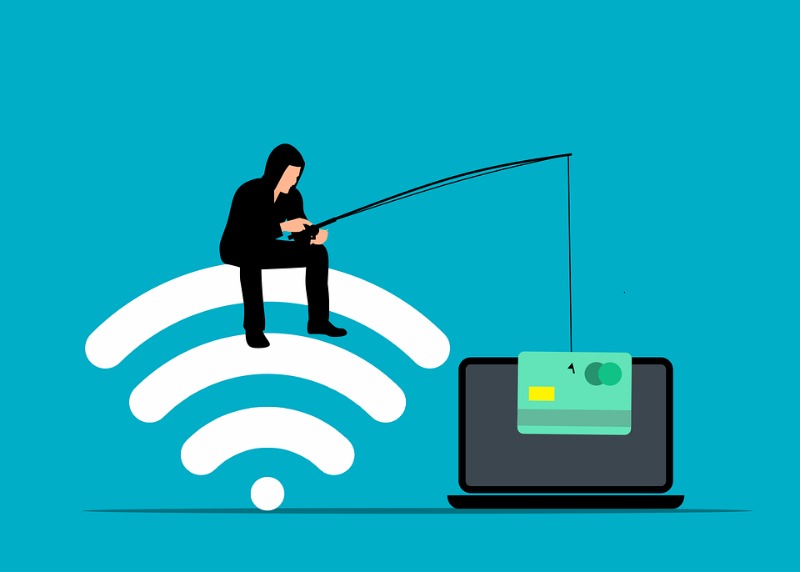How Do Internet Scams Work in Today’s World?
It is the use of Internet services or software with Internet connectivity to swindle victims or otherwise take advantage of them that is referred to as Internet fraud. Internet criminal schemes defraud victims of millions of dollars each year, and they continue to plague the Internet through a variety of different means. Scams on the internet are always evolving and can take many forms.

The phrase refers to someone who defrauds or takes advantage of victims through the use of online services or software, usually for financial gain, in the traditional sense. Using personal or professional email accounts, social networking sites, dating apps, or other techniques, cybercriminals may attempt to contact potential victims in order to obtain financial or other vital personal information. Many effective online scams have a similar conclusion: the victims either lose their own money or do not receive the sums that the fraudster promised to send them.
According to the FBI’s Internet Crime Report, the FBI Internet Crime Complaint Center received 351,936 complaints of internet crimes in 2018, resulting in damages in excess of $2.7 billion, according to the FBI Internet Crime Report. According to a 2017 Federal Trade Commission research, everyone who uses an internet-connected device has the potential to become a victim of an internet scam. Still, millennials may be more prone to losing money.
Nearly 40% of those who reported fraud were between the ages of 20 and 29 and reported losing money. In comparison, 18 percent of respondents aged 70 and older reported that they had lost money as a result of fraud. People aged 80 and beyond, on the other hand, tended to lose more money – the median reported loss was $1,092, compared to $400 for those aged 20 to 29.
Latest News & Scam Alerts




The Latest 411 on Current Day Cell Phone Scam

Smishing: A Whole New Level of Scams & Frauds
Study shows that nearly 40% of those who Report Fraud attacks are young adults between ages of 20-29 yrs old
Federal Trade Commission
If you want to keep yourself safe from falling victim to internet scams, then you’re definitely at the right place. We can give you the best practices in identifying red flags as well as help you in recovering your stolen money from scammers!
Table of Contents
Different Types of Internet Scams & Their Role in Scamming You

Here are some of the most common internet scams that exist and have a brutal impact on the victim; they almost always have to do with placing the victim at a financial disadvantage.
1. Overpayment scam
The way this works is that, at first, a transaction appears to be authentic. You receive a response to your internet advertisement from someone who expresses interest in purchasing an item you are offering. When you receive a check for more than the purchase amount, the buyer invents a rationale for doing so and then demands that you wire back the difference before the funds clear your bank account.

After you’ve repaid the difference, it becomes evident that the money you were transferred was fictitious — and you’re out the money you handed the scam artist. Take precautions. If someone delivers you a large sum of money that is well in excess of what you owe, it may be a scam. Don’t issue any refunds until the funds have been transferred to your account. If you’re truly concerned, you can also cancel the entire transaction and file a complaint with the platform where you posted the online advertisement on the internet.
2. Quick-money promise scam
This scam may begin with a phone call, a LinkedIn message, or an unsolicited email that promises a job that requires little to no real effort but pays well and offers a large sum of money quickly. Criminals who engage in this fraud frequently prey on those who are seeking a new job or who want to work from home. However, once you have been hired, you will be required to complete standard paperwork in which you will be requested to enter your Social Security number, address, and bank information, ostensibly in order to receive your paycheck via direct deposit.

This personal information can be used by scammers to get access to your financial accounts and steal money. There’s more to it than that. Your new position may expose you to the possibility of participating in a money-laundering operation without your knowledge. What is the lesson here? Make use of well-known, reliable employment sites while looking for work, do your homework on the company, and avoid applying for positions that appear like they are too good to be true.
3. Facebook impersonation scam
Scammers may target Facebook users from time to time. In one of the most recent cases, a fraudster uses the name, profile photo, and other basic information from a legitimate Facebook account to create a second, nearly identical account on the social networking site. In the following step, the scammer sends friend requests to the original account’s friend list in an attempt to obtain personal information from the unaware friends. They have agreed to allow the scammer access to their accounts.

If you receive a friend request from someone who should already be on your friend list, go to their profile and look for their account information. If you come across two accounts that are nearly identical to one another, it’s likely that one of the accounts is a fake. It is recommended that you report the cloned account to Facebook and that you notify your friend in person or over the phone so that it is clear who you are speaking with. If you suspect that your account has been hacked, reset your password immediately and contact Facebook to have the situation investigated.
4. Phishing scams
Phishing is a frequent fraud that, according to the FBI’s Internet Crime Complaint Center Report, caused victims a total of more than $48 million in losses in 2018. The way it works is as follows. A fraudster will send you an email message that appears to be from a reputable source, such as a bank, social networking site, or online store, for example.

You should not respond to the email message. The communication is an attempt to trick you into disclosing important and sensitive personal data, such as passwords, credit card numbers, and bank account information, to the sender of the message.
For example, you can be sent to a website that appears to be authentic but was created solely for the purpose of collecting your personal information. Fake emails are frequently written in a hurry and with a sense of urgency. Red flags include things like misspelled words, poor grammar, making urgent requests, and threatening financial consequences, as well as logos that don’t quite seem right.

To determine if an email is authentic or not, open a new tab and navigate directly to the company’s official website — without clicking on any of the links contained within the suspected email. As a general rule, never click on links in these emails, never react to them, never seek to unsubscribe from them, and never provide personal information.
Dating Scams Occur Very Often Now!

Do you suspect that someone had scammed you?
If you have any suspicion of a scam or phishing attack, then you can rely on EZChargeback to help you with protection, mitigation, and fund recovery.
You will feel safe knowing that experts with years of experience will be guiding you!

In 2020, the Federal Trade Commission recorded a record $304 million in losses from online dating scams. This is an increase of around 50% over the previous year. When it comes to romance scams, con artists build fictitious profiles on dating websites and apps or contact their victims through popular social media platforms such as Instagram, Facebook, and Google Hangouts.

The fraudsters establish a relationship with their victims in order to gain their trust, sometimes communicating or chatting with them multiple times a day. Then they concoct a lie and approach you for money. Payment by wire transfer, reload card, or gift card is requested by scammers so that they can obtain cash quickly and stay anonymous. They also understand that it is nearly impossible to undo the transactions.
How to avoid an online dating scam?
Don’t ever send money or gifts to a romantic interest who you haven’t met face to face yet. If you believe you are the victim of a romantic scam, stop interacting with the person as soon as possible. Talk to someone you can trust about your new love interest and pay attention if your friends or family members express concern about your new relationship.

Also, check the internet for stories about the person’s job to see whether other people have heard similar tales about them. If someone’s profile photo is paired with another identity or with details that don’t match up, that’s a red flag that they’re being conned.
The Process of Online Money Mule Scams
Scammers are on the lookout for those who can assist them in the transfer of stolen funds. They log on to online dating, job hunting, and social media sites, create fictitious profiles, and invent reasons to send you money, which is typically in the form of a check or Bitcoin. Afterward, they instruct you to transfer the funds to a third party through the use of gift cards or wire transfers.

However, they never mention that the money was stolen, that the stories were made up, or that you, if you sent the money, might be operating as what law enforcement refers to as a “money mule.” If you assist a fraudster in moving stolen money — even if you were unaware that the money was stolen — you could face legal consequences. You’ll also be putting your financial well-being in danger. If you deposit a bogus check, it may appear to be accepted at first. If the check turns out to be a forgery, the bank will demand that you reimburse the whole amount received.
You may incur fees, and your account may be overdrawn or canceled as a result of your actions. Aside from that, using a scammer’s money to purchase gift cards and then handing over the PIN numbers or sending wire transfers is nearly the same as transferring cash. In all instances, the scammer obtains the funds rapidly, making it nearly hard to reclaim the funds.
If you have been scammed by an internet scam then contact us to help you get your money back
Can a Mule Money Scam be Avoided?

If you are wondering whether or not you can save yourself from an online money mule scam then the answer to that is YES! Don’t transfer money to an online romantic interest who sends you money in exchange for your time. That is always a hoax, and it is intended to trick you into moving stolen funds. Accepting a job that requires you to move money or packages is not a good idea, even if they tell you to send money to a “customer” or “supply,” according to the FTC. You could be assisting a scammer in the transfer of stolen money or gift cards. Don’t take a grant or prize award unless you can give some of the money to someone else. That’s yet another ruse to entice you to transfer stolen funds.
If you suspect that you are a victim of this scam, immediately cancel the financial transaction and cease all communication with the individual. Inform your financial institution, wire transfer agency, and any gift card businesses as soon as possible. If a scammer has obtained your bank account details, you should close your account as soon as possible.
Stay Clear of Internet Scams & Stay Safe!
Maintain the security of your desktops and mobile devices. The most effective defense against viruses, malware, and other online threats is to utilize the most up-to-date security software, web browser, and operating system available. Automatic updates should be enabled to ensure that you receive the most up-to-date patches as soon as they become available.
Create passwords that are difficult to guess. When creating a password, make sure it is at least eight characters long and has a combination of upper and lowercase letters, numbers, and special characters. Personal information should be kept private. The password reset tools can be hacked using social media profiles to figure out your passwords and the answers to the security questions in the password reset tools. Lockdown your privacy settings and avoid posting personal information such as birthdays, residences, mother’s maiden name, and other such details. Keep an eye out for requests to connect from persons you don’t recognize.
Make sure your internet connection is secure. Always use a password to protect the Wi-Fi network in your home. Use caution when connecting to public Wi-Fi networks and be aware of the information you are transferring across the network. Shop with caution. Before making a purchase on the internet, ensure that the website is protected by secure technology. When you go to the checkout screen, look to see if the site address begins with the letters “https.” Aside from that, look for the presence of a small, locked padlock icon on the website.
Take a look at the website’s privacy policies. Privacy policies, albeit lengthy and complex, explain how a website safeguards the personal information that it obtains from you. If you are unable to locate or comprehend a website’s privacy policy, you should consider conducting business elsewhere.
do you need help?
A lot of those who contact us have questions and concerns about their personal and business data being compromised. We aim to arm you with the legal and technical know-how in the fight against scams. Also, we will be able to refer you to top scam recovery agencies.
Please fill up the form. Rest assured that our support team will get in touch with you





